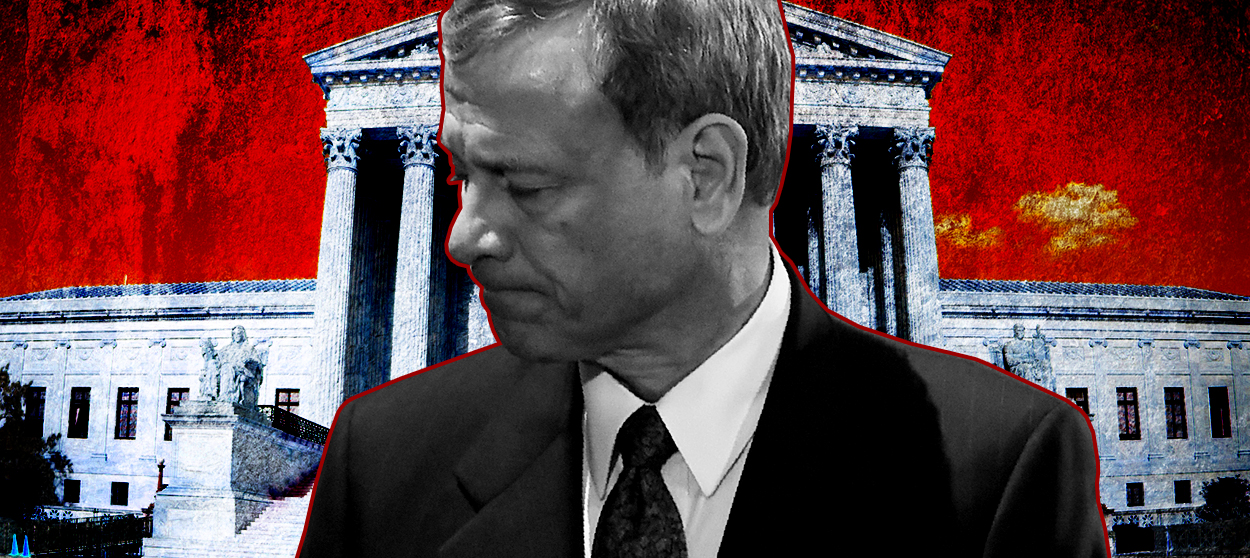The Supreme Court is not coming to the rescue
Desperate Republicans are running roughshod over voting rights — and the Supreme Court won't stop them


The Supreme Court had the opportunity on Monday to address the constitutionality of partisan gerrymandering. Instead, it decided not to decide. In cases involving gerrymandering in Wisconsin and Maryland, it declined to reach a decision on the merits, in the former instance returning the case to the lower courts and in the latter upholding a lower court decision that held Maryland's congressional map unconstitutional. As a result, some egregiously gerrymandered maps will remain in place for the 2018 midterms.
This reflects an unfortunate pattern: Desperate Republicans trying to keep people away from the ballot box to stay in power, and the Supreme Court collaborating in these efforts.
As Richard Hasen of the U.C. Irvine Law School explains, the Supreme Court's decision to punt on Wisconsin's gerrymander comes down to one man: Anthony Kennedy. The Supreme Court justice is unwilling to join his conservative colleagues and hold that gerrymandering is a "political question" that cannot be resolved by the courts. But he is also unwilling to join the Court's liberal wing and create a rule to evaluate the constitutionality of partisan filibusters. And so the issue remains unresolved.
The Week
Escape your echo chamber. Get the facts behind the news, plus analysis from multiple perspectives.

Sign up for The Week's Free Newsletters
From our morning news briefing to a weekly Good News Newsletter, get the best of The Week delivered directly to your inbox.
From our morning news briefing to a weekly Good News Newsletter, get the best of The Week delivered directly to your inbox.
This is a deeply regrettable outcome. Wisconsin's gerrymander is extreme — in 2012, for example, Democrats got 51.4 percent of the vote but received only 39 of 99 seats in the state legislature. But the 2018 elections will be fought with the map in place, and the Supreme Court continues to refuse to address the question because of Kennedy's indecision. As Justice Elena Kagan pointed out in her concurrence, while partisan gerrymandering goes back to the earliest day of the republic, computer technology has made the problem much more dire. Democrats could win the popular vote in the upcoming midterms by 6 or 7 points and still not gain control of the House — an outcome that is obviously unacceptable in a democracy. The Supreme Court had a chance to act and failed to.
And yet it could be worse. In other decisions related to voting rights, Kennedy has simply joined his Republican colleagues to undermine them.
Last week, the Supreme Court issued a ruling, Husted v. A. Philip Randolph Institute, that upheld Ohio's draconian voter purge law. The Ohio law presented a potential conflict with the National Voter Registration Act, which makes it illegal to use a failure to vote as a reason to remove voters from the rolls. As Justice Breyer noted in his dissent, the Ohio law — which wipes a voter off the books if she fails to respond to a mailed warning about inactivity — effectively reads this prohibition out of the law. And as Justice Sotomayor noted in her own dissent, the Ohio law ignored the core purpose of the NVRA — to prevent the disenfranchisement of minority and low-income voters — and indeed strengthened a law that will disproportionately suppress such voters. But Kennedy joined his fellow Republicans to uphold it.
And Kennedy has joined an even more egregious attack on voting rights. In the 2013 case Shelby County v. Holder, the Supreme Court cut out the heart of the Voting Rights Act, the most important civil rights statute passed since Reconstruction. Congress, under authority explicitly granted by the 15th Amendment, required jurisdictions with a history of discrimination to pre-clear any changes to their voting laws with the Department of Justice. Roberts struck down the coverage formula enacted by Congress, under the theory that racism is no longer the pressing issue it was in 1965. As Justice Ginsburg pointed out in her unanswerable dissent, "throwing out preclearance when it has worked and is continuing to work to stop discriminatory changes is like throwing away your umbrella in a rainstorm because you are not getting wet."
A free daily email with the biggest news stories of the day – and the best features from TheWeek.com
And Roberts' contention that voter discrimination is no longer a serious issue has proven to be laughably false. Several states enacted vote suppression laws in the immediate wake of Shelby County. One passed in North Carolina, for instance, was found by a federal judge to have "target[ed] African Americans with almost surgical precision." Now North Carolina is trying to resurrect part of the law that was struck down by a lower federal court, eliminating the last day of Saturday voting, which has been used disproportionately by African Americans. Note that there isn't even the pretext that such a change is necessary to prevent voter fraud; making it harder for African Americans to vote is the sole purpose of the change.
These Republican attacks on democracy, in other words, are one of the many and increasing number of areas in which the Republican establishment and President Trump are in complete agreement. Chief Justice John Roberts, the ur-establishment Republican, has been exploring ways to use the law to undermine voting rights since he was an official in the Reagan administration. In theory, the Supreme Court is supposed to be the institution that stops attacks on the most fundamental rights of minorities. In practice, Republicans on the Supreme Court have not merely permitted the attacks but exacerbated them.
Monday's irresponsible punt is merely the latest example of a corrosive trend.
Scott Lemieux is a professor of political science at the College of Saint Rose in Albany, N.Y., with a focus on the Supreme Court and constitutional law. He is a frequent contributor to the American Prospect and blogs for Lawyers, Guns and Money.
-
 Saving for a down payment on a house? Here is how and where to save.
Saving for a down payment on a house? Here is how and where to save.the explainer The first step of the homebuying process can be one of the hardest
-
 Music reviews: Zach Bryan, Dry Cleaning, and Madison Beer
Music reviews: Zach Bryan, Dry Cleaning, and Madison BeerFeature “With Heaven on Top,” “Secret Love,” and “Locket”
-
 Book reviews: ‘The Mattering Instinct: How Our Deepest Longing Drives and Divides Us’ and ‘Family of Spies: A World War II Story of Nazi Espionage, Betrayal, and the Secret History Behind Pearl Harbor’
Book reviews: ‘The Mattering Instinct: How Our Deepest Longing Drives and Divides Us’ and ‘Family of Spies: A World War II Story of Nazi Espionage, Betrayal, and the Secret History Behind Pearl Harbor’Feature The pursuit of ‘mattering’ and a historic, devastating family secret
-
 The billionaires’ wealth tax: a catastrophe for California?
The billionaires’ wealth tax: a catastrophe for California?Talking Point Peter Thiel and Larry Page preparing to change state residency
-
 Bari Weiss’ ‘60 Minutes’ scandal is about more than one report
Bari Weiss’ ‘60 Minutes’ scandal is about more than one reportIN THE SPOTLIGHT By blocking an approved segment on a controversial prison holding US deportees in El Salvador, the editor-in-chief of CBS News has become the main story
-
 Has Zohran Mamdani shown the Democrats how to win again?
Has Zohran Mamdani shown the Democrats how to win again?Today’s Big Question New York City mayoral election touted as victory for left-wing populists but moderate centrist wins elsewhere present more complex path for Democratic Party
-
 Millions turn out for anti-Trump ‘No Kings’ rallies
Millions turn out for anti-Trump ‘No Kings’ ralliesSpeed Read An estimated 7 million people participated, 2 million more than at the first ‘No Kings’ protest in June
-
 Ghislaine Maxwell: angling for a Trump pardon
Ghislaine Maxwell: angling for a Trump pardonTalking Point Convicted sex trafficker's testimony could shed new light on president's links to Jeffrey Epstein
-
 The last words and final moments of 40 presidents
The last words and final moments of 40 presidentsThe Explainer Some are eloquent quotes worthy of the holders of the highest office in the nation, and others... aren't
-
 The JFK files: the truth at last?
The JFK files: the truth at last?In The Spotlight More than 64,000 previously classified documents relating the 1963 assassination of John F. Kennedy have been released by the Trump administration
-
 'Seriously, not literally': how should the world take Donald Trump?
'Seriously, not literally': how should the world take Donald Trump?Today's big question White House rhetoric and reality look likely to become increasingly blurred
